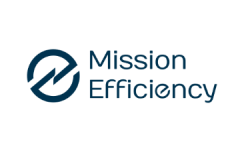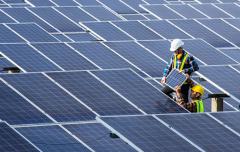Asia Clean Energy Summit: Energy Efficiency - Building a Low-Carbon Asia and the Pacific
Jointly organized by Asian Development Bank (ADB), Sustainable Energy Association of Singapore (SEAS), Sustainable Energy for All (SEforALL), and The Energy Conservation Center, Japan (ECCJ)
15:00 - 17:30 SGT (9:00 - 11:30 CEST)
The event will be live-streamed for registered participants. Register here.
Growth in Asia and the Pacific has resulted in increased demand for building floor area and energy-consuming services. As an indication, in 2018, the building sector of the Association of Southeast Asian countries, the People’s Republic of China (PRC) and India accounted for 27 percent of their combined final energy use and 24 percent of their energy-related carbon dioxide emissions, excluding emissions from manufacturing building materials. Energy demand is projected to almost double in Asia and the Pacific by 2030. New building construction in the region is expected to represent nearly half of the world’s total by 2040.
The potential of energy efficiency, especially end-use energy efficiency in buildings, in Asia and the Pacific remains high. Many countries in the region that have taken determined measures to systematically address energy efficiency in their policies and regulation have demonstrated declining energy intensities. According to the International Energy Agency’s World Energy Outlook 2019, energy efficiency and the decarbonisation of electricity in Asia has the potential of reducing annual emissions from buildings in 2040 by almost 3,000 megatonnes of carbon dioxide. Material efficiency could bring significant additional reductions in greenhouse gas (GHG) emissions in the material lifecycle of buildings, with potential reductions of over 80 percent in the PRC and 50 percent in India for residential buildings.
This track will discuss the challenges of energy efficiency and how to create an enabling framework for promoting efficiency gains on the demand-side to save costs, reduce air pollution and curtail carbon footprint, by way of advanced clean technologies and solutions and the use of innovative business models and financing instruments.
Learn more about our Energy Efficiency for Sustainable Development programme.
Agenda
- Opening Remarks
Priyantha Wijayatunga, Chief of Energy Sector Group, Asian Development Bank (ADB)
- Session 1: Policy, Strategy, Role of the Public Sector
Moderator: Rosa Garcia, Energy Efficiency and Cooling Specialist, Sustainable Energy for All (SEforALL)
Energy Efficiency trends and opportunities to recover better in Asia
Alvin Jose, Principal Energy Specialist, Sustainable Energy for All (SEforALL)
Toward Zero Energy Buildings: Methodology for achieving non-residential zero-energy buildings (ZEBs)
Katsuhiko Yamamoto, General Manager, The Energy Conservation Center, Japan (ECCJ)
National Policies and Strategies for Promoting Energy Efficiency in Public Sector Buildings: Experiences from Cambodia and Viet Nam
Rajeev Ralhan, Executive Director, PricewaterhouseCoopers India
- Session 2: Best Practices: Innovative Solutions and Technologies
Moderator: Joao Aleluia, Regional Clean Energy Specialist, Asian Development Bank (ADB)Singapore Case: Building Energy Efficiency (developing a national energy efficiency program)
SGBC
Best Practices on Demand-Side Energy Efficiency
Peter Goh, Vice President, Sunseap Solutions
Promoting Market Transformation through Energy Efficiency in India - EESL's Success Stories
S.P Garnaik, Executive Director (lighting) Energy Efficiency Services Ltd (EESL)
-
Session 3: Financing and Business Models
Moderator: Rosa Garcia, Energy Efficiency and Cooling Specialist, Sustainable Energy for All (SEforALL)
Market Opportunities and Financing Needs
Søren Lütken, Chair, Global ESCO Network
Financing Affordable Housing in Thailand through ESG bonds: Case Study of the National Housing Authority
Robert Himmler, Managing Director, EGS-plan (Bangkok)
Green Financing
Peter Lau, Director, Sustainable Development Capital (Asia) Limited
-
Concluding Remarks
Vincent Low, Energy Efficiency Committee Chairman, SEAS
Register here.



